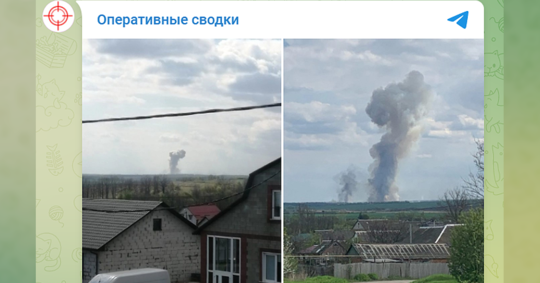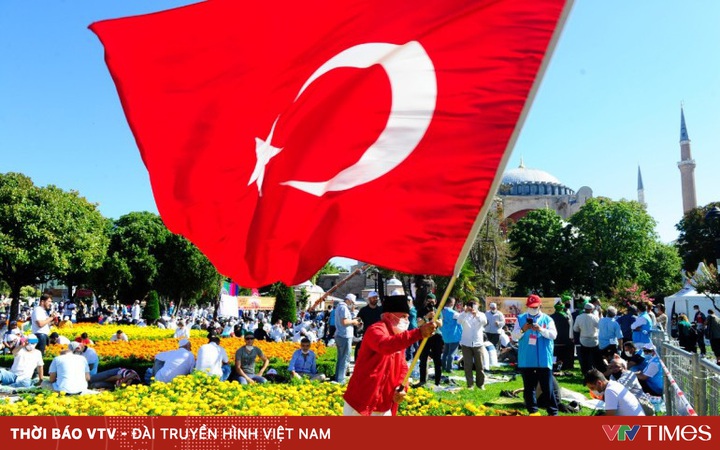Two men challenge unity in NATO and EU
The West’s efforts to isolate Russia are stalled by the President of Turkey and the Prime Minister of Hungary, two leaders who steadfastly prioritize national interests as well as internal political goals.
President Recep Tayyip Erdogan of Turkey on May 18 blocked a procedural vote by the North Atlantic Treaty Organization (NATO) on fast-tracking the review. application for registration to join of Sweden and Finland, sent to the alliance by the foreign ministers of the two countries in the morning of the same day.
Meanwhile, Prime Minister Viktor Orban of Hungary continues to block the European Union’s (EU) attempt to pass embargo on Russian oilpart of a sixth package of sanctions against Moscow for its “operation military” in Ukraine.
Although NATO and the EU have shown considerable solidarity in their response to Russia, the actions of the two leaders show that tensions are building day by day amid the crisis. The war is not over yetpeace talks appear to be going nowhere and Western sanctions have begun to affect the economies in these countries as well as in Russia.
Mr. Erdogan and Mr. Orban could be “alone” leaders in the above organizations. The point is that they can use the need for consensus in both NATO and the EU to address political concerns by blocking the actions of all the remaining leaders, even if only temporarily. according to The New York Times.
National first, international later
On May 18, the ambassadors of NATO countries were unable to reach a consensus to begin the process of reviewing the accession applications of Sweden and Finland, because Turkey said it first wanted NATO to resolve the accession issues. worry about your security. In particular, Ankara wants Helsinki and Stockholm in particular to end what Mr. Erdogan called support of “terrorist organisations”, mainly the Kurdistan Workers’ Party, or PKK, as well as lift the ban on the sale of certain certain weapons for Turkey.
 |
President Recep Tayyip Erdogan of Turkey opposed the admission of Finland and Sweden to NATO afp |
The move comes before Turkish Foreign Minister Mevlut Cavusoglu has a meeting with US Secretary of State Antony Blinken in New York. Ankara wants its security concerns resolved before the annual NATO summit in late June.
In a speech to the ruling party’s lawmakers on May 18, Mr criticize Western support for Kurdish groups that Ankara considers a terrorist threat.
“It wouldn’t be wrong to say that we have mixed feelings when we see solidarity and cooperation in the region, resources used, arms open, tolerance demonstrated,” he said. . “Because, as a NATO member that has struggled with terrorism for many years, seen border harassment and massive conflict happening right next door, we’ve never seen a picture like this,” he said. so”.
Erdogan said Turkey “ask for (extradition) 30 terrorists”, but the response was “we will not hand them over”. “You’re not going to hand over the terrorists but you want to join NATO. We can’t say ‘yes’ to a security organization that lacks security like that,” he said.
The PKK is a Kurdish guerrilla group that has fought in the decades-long separatist insurgency in Turkey. The group is considered a terrorist organization by both the US and the EU.
Mr. Erdogan remains angered by Washington and Stockholm’s support for the PKK-linked militia in Syria, known as the YPG for short. Last year, the Ankara government criticized the US and Sweden over the issue. Turkey has requested the extradition of six alleged PKK members in Finland and 11 similar cases in Sweden.
But Mr. Erdogan did not say he would reject the application for accession by the two countries. Before that, Mr. Ibrahim Kalin, spokesman and advisor policy foreign affairs of the Turkish president, said: “We not closed. But we basically raise this issue as a matter of national security for Turkey.”
Goals keep changing
National security is also Mr. Orban’s argument. Hungary is dependent on Russia for energy, with 85% of its natural gas supply and 65% of its oil supply coming from Russia, as well as using technology of Russia for nuclear power plants.
 |
Hungary’s Prime Minister Viktor Orban blocks the EU from passing a Russian oil embargo afp |
Although Hungary has agreed to all previous EU sanctions, including the Russian coal embargo, Mr Orban stated that the oil embargo would be like an “atom bomb” for the economy. Hungarian economy.
But like Mr. Erdogan in NATO, Mr. Orban was the only one to oppose this time, keeping the EU from being able for weeks to introduce a step-by-step embargo on Russian oil. This is the main measure in the sixth draft of sanctions since Russia sent troops to Ukraine at the end of February.
The negotiation process began in mid-April. After extensive consultations between officials and diplomats from the 27 EU member states, a proposal was put forward in early May with consideration of establishing different schools of the country.
But Hungary seems to be changing its sights. The first proposal made exceptions for Hungary and Slovakia to give them enough time to find alternative energy sources. While the other 25 EU members will have until the end of this year, the deadlines for Hungary and Slovakia have been pushed to the end of 2023.
Then Hungary requested and was approved even more time. The latest version of the draft sanctions gives Hungary a deadline until the end of 2024, but Mr Orban insists Hungary will need billions of dollars from the EU to protect its economy. The country’s foreign minister, Peter Szijjarto, said that to use different oils and modernize the energy system, Hungary would need to spend between 15 billion euros and 18 billion euros and take five years.
Hungary’s blockade of the EU’s Russian oil embargo, breaking unprecedented solidarity in sanctions against Russia, was warmly received in Moscow. Dmitri Medvedev, a former Russian president who now serves as vice chairman of the national security council, said Mr Orban’s move was a “courageous step towards a voiceless Europe”.
Finally agree?
Diplomats say Orban will eventually agree to an oil embargo, after securing both a long enough time frame and additional funding for Hungary. But he could prolong the negotiations, perhaps until the end of the month when the leaders are expected to meet face-to-face in Brussels to discuss Ukraine.
NATO officials have expressed similar confidence in Mr. Erdogan – that he will eventually agree to Sweden and Finland joining NATO in exchange for some concessions. These concessions could help him in domestic politics, given the crisis in Turkey’s economy and the next election scheduled for next summer.
Alexander Stubb, Finland’s former prime minister and foreign minister, said that “after all, it’s about European security and about strengthening the alliance, and both Finland and Sweden strongly support Turkey. become a member of the EU”.
In 1999, the EU, with Finland taking the presidency, opened the door for Turkey’s accession, “and our friends in Ankara will remember it,” he said.
Finnish President Sauli Niinisto said Ankara “has informed us through various sources that Turkey will not prevent us from joining (NATO)”. Fast approval is still possible, he said.
NATO Secretary General Jens Stoltenberg is confident that “we will be able to address the concerns expressed by Turkey in a way that does not delay the accession process” of Sweden and Finland.
at Blogtuan.info – Source: thanhnien.vn – Read the original article here



